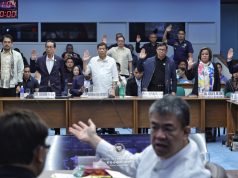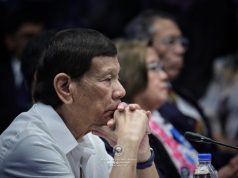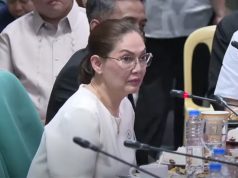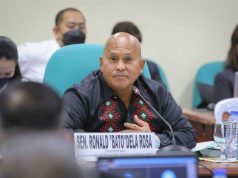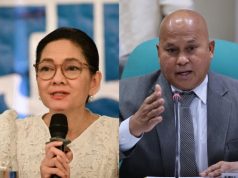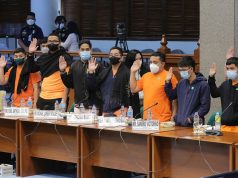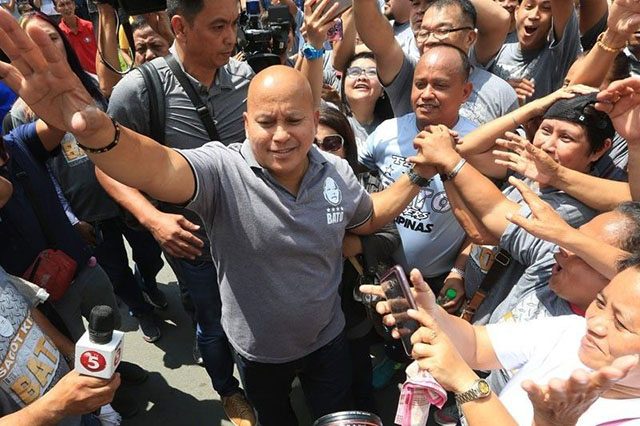
The controversial answers of former PNP chief and senatorial aspirant Ronald “Bato” Dela Rosa in a televised interview about his supposed lack of knowledge in lawmaking prompted a look at what a senator actually does.
The former top cop was interviewed by CNN Philippines broadcaster Pia Hontiveros who asked him about the first thing he would do as a senator, as he is one of the leading ones in the partial unofficial tally.
Dela Rosa answered that he would take up seminars or trainings teaching him to create laws.
“Ewan ko kung meron bang seminar diyan, or ano bang training diyan para matutuhan ko kung paano gawin ‘yung ng batas, kung paano gawin ‘yung trabaho sa senado. Kung merong ganon, I’ll take that opportunity para matuto ako,” he said.
Dela Rosa added that he would also rely on reelectionists JV Ejercito and Koko Pimentel to help him prepare so that he wouldn’t be a laughingstock.
“Magtawag tawag ako kina Koko Pimentel, JV Ejercito kung ano ba talaga ang trabaho ng senador.. what do I need to prepare para pagpasok ko… hindi na ito katawa-tawa,” he said.
Some Filipinos, however, were not too keen on his answers.
There were those who slammed him for not knowing about the position he initially entered into but others recalled that he has actual academic credentials to back him up.
Kalma lang kayo, guys. Meron daw Masters in Public Administration and PhD in development administration itong si Bato Dela Rosa.
Kunwari kwela lang ‘yan, pero mukhang ready siya maging bulldog ni Duterte sa senado.
— Irvin #36SamiraGutoc (@arbitolmighty) May 14, 2019
Dela Rosa attended the Mindanao State University to earn a bachelor’s degree in public administration for three years but he transferred to the Philippine Military Academy in 1982.
He graduated with a bachelor’s degree in military science as part of PMA’s “Sinagtala” Class of 1986.
After which, he pursued a master’s degree in public administration at the University of Southeastern Philippines and finished it in 1998.
Dela Rosa also earned a doctorate degree in development administration at the same university and graduated in 2006.
Public administration focuses on studying the different agencies of the government and its relationship to one another, the people running them, the policies they create and how it is implemented.
Development administration, meanwhile, focuses on translating national development plans and policies into precise programs and projects.
What does a senator do?
A senator is part of the legislative branch of government that enacts legislation and confirms or rejects presidential appointments.
To become qualified, the individual must be a natural born citizen of the country.
He must also be at least 35-years-old, has the ability to read and write, is a registered voter and a resident of the Philippines not less than two years before election day.
A senator has eight important responsibilities, according to public administration professor Edna Co of the University of the Philippines. These are the following:
- Lawmaking
- Conducting investigations in aid of legislation
- Scrutinizing the Congress’ budget bill and certain appointments made by the president
- Serving as impeachment judges
- Evaluating treaties entered by the country
- Declaring a state of war
- Concurring or dissenting on a president’s grant of amnesty
- Revoking or granting martial law or suspending the privilege of the writ of habeas corpus
Co also mentioned that senators are allowed to seek assistance from their respective legislative staff and consultants to execute their duties.
Late Senator Juan Flavier in his pamphlet titled “Now That You Are a Senator: An Introduction to Organizing the Work of a Senator of the Republic of the Philippines” summarized the role of a senator into four functions.
According to him, members of the upper house are expected to specialize in lawmaking, public advocacy, constituency building and government oversight.




